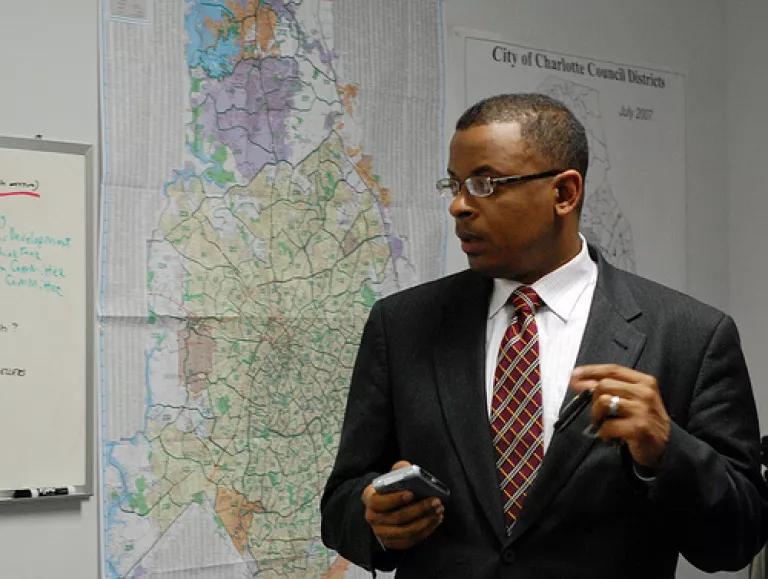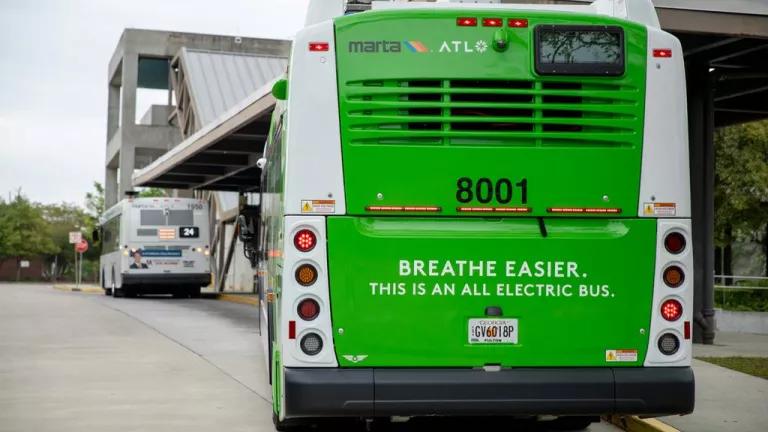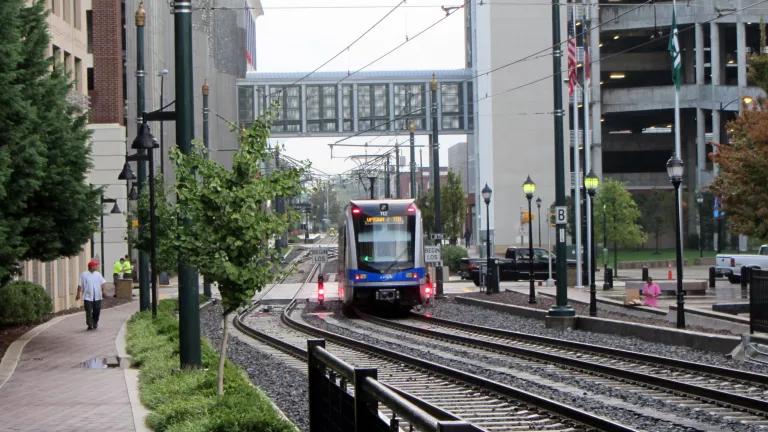In 2011, residents of sprawling, fast-growing, Charlotte became part of a case study on obesity. Just a few years earlier, Charlotte had been one of the most car-dependent cities in the nation. But in 2007, the city launched LYNX, its first light-rail line. Researchers found that the Body Mass Index of light rail riders dropped by an average of 1.18 points--the equivalent of a 5-foot, 5-inch person losing about 6.5 pounds—compared to non-riders who also lived along the route. Light-rail riders were also 81 percent less likely to become obese over time, compared to those who drove to work.
So in addition to reducing harmful air pollution, saving gas, creating jobs, and easing traffic congestion, public transit can help you lose weight. Just another example of how the way we move is so critical to how we live. Transportation affects our health, our pocketbooks, our climate, and our economy. Anthony Foxx, Charlotte’s mayor and President Obama’s nominee to succeed Ray LaHood as Secretary of Transportation, seems to understand that. “He connects the dots between environment, sustainability, and transit,” says Shannon Binns, head of the nonprofit advocacy group Sustain Charlotte, who helped design Foxx’s environmental platform as mayor. Mayor Foxx’s commitment to public transit and alternative modes of transportation, as well as his appreciation of the needs of rapidly growing metropolitan areas, bode well for his potential to head our national transportation agency.

(Image courtesy James Willamor via Flickr)
In his first two weeks of office, Foxx signed the U.S. Conference of Mayors Climate Protection Agreement, and transportation has been a key part of efforts to reduce the city’s carbon pollution. Last year, Foxx secured investment to expand Charlotte’s wildly successful LYNX light rail, bringing service from downtown north to the UNC-Charlotte campus. The project is expected to create about 7,000 jobs in the region, pushing North Carolina into the number two spot for clean energy jobs in 2012. Under his watch, Charlotte also launched a bike share program, installed electric vehicle charging stations, added sidewalks, and is pushing to launch streetcar service as well. (That project, launched with federal funding, is now getting pushback from the City Council and, disappointingly, from the formerly pro-transit governor of North Carolina, where the state legislature has embarked on a series of attacks on environmental policies.)
As head of the DOT, Foxx would have some big shoes to fill—outgoing secretary Ray LaHood was popular and a surprisingly strong supporter of public transit. But as a former mayor, Foxx would bring a much-needed urban perspective to our national transportation programs. The latest transportation bill shifted more funding to states, which typically prefer to spend on highway projects, at the expense of metropolitan regions. Having the mayor of a thriving city with a growing transit network at the helm of the national transit agency could help metropolitan areas get their fair share of the funding they need to serve their growing populations.
Should he be confirmed as the next transportation secretary, Foxx should, at the very least, continue LaHood’s legacy of investment into upgrading our outdated transportation network—not just roads but public transit as well--and faithfully execute President Obama’s groundbreaking fuel-efficiency standards, which are helping wean us off our dangerous dependence on oil. And as a relatively youthful Washington outsider, with a clearly demonstrated willingness to listen, perhaps he can bring some new energy to an aging industry. Given some room, Foxx could make real progress in bringing our 20th-century oil-dependent transportation network into a modern, multi-modal 21st century future, where more people have more options to get where they need to go, safely, affordably, and with less pollution.



